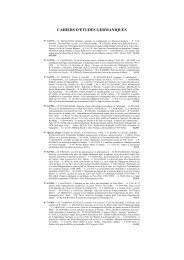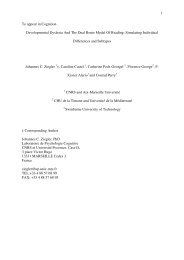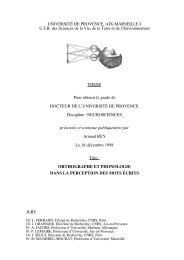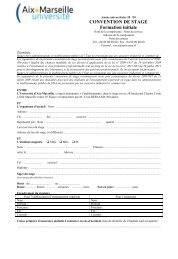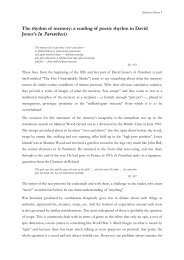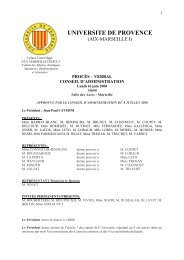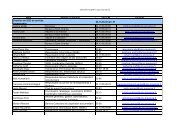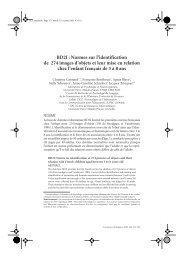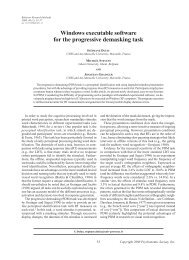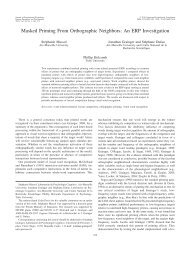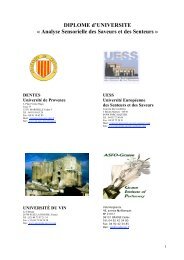ANAGRAM EFFECTS IN VISUAL WORD RECOGNITION
ANAGRAM EFFECTS IN VISUAL WORD RECOGNITION
ANAGRAM EFFECTS IN VISUAL WORD RECOGNITION
You also want an ePaper? Increase the reach of your titles
YUMPU automatically turns print PDFs into web optimized ePapers that Google loves.
P. Courrieu & M. Lequeux / Anagram Effects 28 / 40This final result showed that the presentation of a frequent word had afacilitatory effect on the subsequent recognition of its less frequent lexicalanagram, even though the two words had no common letters in the sameposition. Note that this positive effect, which occurred when the frequentanagram was in fact presented, is the opposite of the negative effect observedin Experiment 1, where the more frequent anagram was not presented. We notealso that the prior presentation of the less frequent anagram had no detectableeffect on the subsequent recognition of the more frequent one. Given that theprime was fully processed in this experiment, one could suspect that some kindhal-00429184, version 1 - 1 Nov 2009of anagram relationship based predicting strategy was used by the participants.However, given that frequent words are a priori more predictable thaninfrequent words, a predicting strategy should have produced facilitatory effectson frequent anagrams at least as well as on infrequent anagrams, which doesnot match the observed pattern of results. Thus, a plausible interpretation is thatfrequent anagrams provide activation to their less frequent anagrams (anagrampriming effect), while the opposite is not true. As we shall see below, thishypothesis also allows for understanding the anagram prime x lexical anagraminteraction effect observed in Experiments 2 and 3, as well as (paradoxically)the anagram frequency effect observed in Experiment 1.Table 8. Mean response time (ms) and percentage of correct lexical decisionsin Experiment 4.FirstSecondMost frequent anagram763 (99%)773 (99%)Less frequent anagram918 (94%)853 (96%)




